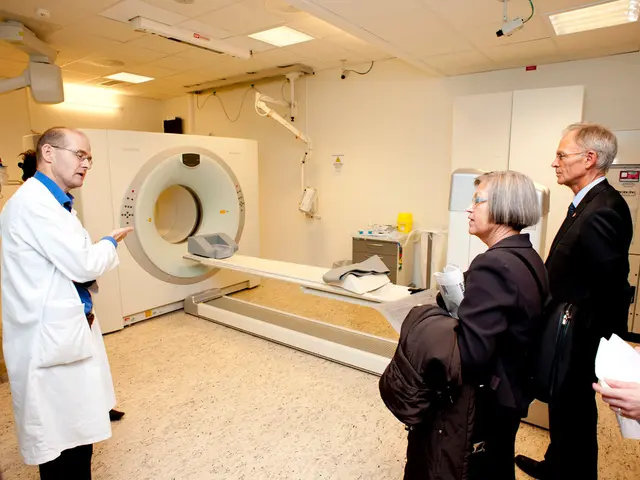Enhance Productivity and Excel in Time Management for Executive Assistants
In today's fast-paced business environment, the role of an executive assistant is more crucial than ever. These indispensable professionals play a vital part in corporate structures, ensuring smooth operations, communication, and process optimization. To maximise their impact and contribute to the overall success of the business, executive assistants can employ a variety of strategies that go beyond the traditional SMART goal framework.
One such strategy is setting goal themes aligned with the role and company mission. By identifying broad themes relevant to daily tasks and areas for improvement, such as organisational skills, productivity, leadership, event planning, or communication, and aligning these themes with the company's mission and the executive's priorities, executive assistants can ensure their goals support organisational objectives and add strategic value.
Another essential strategy is developing and implementing consistent, efficient processes. Establishing regular, standardised procedures for recurring tasks like scheduling, meeting coordination, and office management can reduce inefficiencies and increase reliability.
Leveraging technology and tools is another key strategy. Using scheduling or project management software to streamline tasks like appointment setting, travel itineraries, and meeting logistics can help reduce planning time and minimise errors. Integrating these tools with communication platforms like Slack can keep everyone on the same page.
Improving communication skills is also vital. Executive assistants can tailor methods to urgency and audience, and seek regular feedback from their executives to monitor progress and identify growth opportunities. This reinforces the commitment to continuous improvement and helps adjust goals accordingly.
Setting measurable performance targets is another important strategy. Making goals quantifiable, such as answering phone calls within 3 rings, reducing office supply restocking frequency, or completing travel itineraries within three hours, enables tangible assessment and motivation.
Regular reviews and updates are also crucial. Conducting quarterly reviews with executives to update on accomplishments, discuss workflow improvements, and adjust goals keeps objectives relevant and shows transparency about contributions.
Pursuing professional development is the final key strategy. Continually improving technical and soft skills by participating in training sessions or seminars on tools like Microsoft Office or communication techniques keeps skills current, enhances efficiency, and overall impact.
By integrating these strategies, executive assistants can create focused, actionable goals that elevate their role from administrative support to a strategic partner within their organisation, driving both personal growth and organisational success.
In addition, executive assistants can streamline operations, allowing executives to focus on strategic growth. Utilising tracking tools and feedback mechanisms ensures ongoing progress and goal adjustments, maintaining high performance and continuous improvement.
Setting clear goals, such as streamlining meeting agendas, optimising calendar management, and implementing follow-up procedures, can improve time management, communication, and organisational impact. Regularly reviewing key performance indicators like task completion rates and meeting follow-up efficiency can identify areas for improvement and ensure necessary adjustments are made based on data.
Scheduling regular one-on-one meetings with executives to discuss progress and solicit feedback is also beneficial. Mastering the role of an executive assistant can contribute to the overall success of the business.
In conclusion, by adopting these strategies, executive assistants can transform their roles, becoming strategic partners who drive organisational success and contribute to the growth and development of the business.
Pursuing strategies like setting goal themes aligned with the company mission, developing efficient processes, leveraging technology, improving communication skills, setting measurable performance targets, conducting regular reviews, and pursuing professional development can help executive assistants transform into strategic partners who drive organizational success and personal growth. By employing these methods, they can streamline operations, allowing executives to focus on strategic finance, business growth, careers, education-and-self-development, and personal growth. Additionally, setting clear goals such as optimizing calendar management, streamlining meeting agendas, and implementing follow-up procedures can improve time management, communication, and organizational impact. Regularly reviewing key performance indicators identifies areas for improvement and ensures necessary adjustments are made based on data, maintain high performance and continuous improvement.




